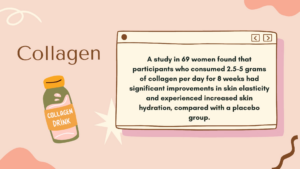One potential explanation, explored by the field of epigenetics, is that environmental factors such as diet, lifestyle, and exposure to toxins can alter gene expression without changing the underlying DNA sequence. Nutrition and Nutrition Plays a Key Role in Epigenetic Mechanisms that Control Cellular Health and Disease Variability. In this piece, we explore the complex interplay between nutrition and epigenetics, revealing how your food decisions can influence gene expression, subsequently reducing or exacerbating your overall health.
Diet, Epigenetics, and Gene Expression
Epigenetic mechanisms such as DNA methylation, histone modification, and non-coding RNA regulation play an important role in controlling a suite of downstream changes to the patterns of gene expression that are altered through the ingestion of dietary components. Folate, B vitamins, and methyl donors (e.g. choline) are all important nutrients for the DNA methylation process, that is, the addition of methyl groups onto DNA molecules to regulate gene activity. Histone modifications (such as acetylation and methylation) soon respond to dietary modulations by polyphenols and omega-3 fatty acids in gene-transcription-related chromatin structure and accessibility of cellular functions.
Disease risk and health outcomes
Epigenetic regulation that is modified by diet and lifestyle habits is important to the susceptibility to chronic diseases including cancer, cardiac diseases, diabetes, and neurodegenerative disorders. Unhealthy dietary patterns such as high consumption of processed foods and rich in saturated fats and sugar may induce epigenetic alterations leading to inflammation, oxidative stress, and metabolic dysfunction that can culminate in the development of diseases. On the other hand, a healthy, well-balanced diet that includes antioxidants, phytochemicals, and essential nutrients can help support epigenetic mechanisms that help guarantee our cells are healthy, our immune system is strong, and we are doing our best to ward off disease.
Development: Programming and Early Life Nutrition
Nutrition in early life is a major factor in developmental programming and can influence epigenetic marks that alter adult health. Background. Maternal diet around pregnancy and lactation can impact on growth, metabolism, and immune function of the offspring by changing the epigenetic patterns that regulate these functions [ 4 ]. The provision of good maternal nutrition, such as adequate folate, omega-3 fatty acids, and micronutrients, during the prenatal period is recognized to reduce the incidence of dysregulation of the epigenome and improve neonatal health, which would lower the risk of diseases such as developmental disorders and chronic diseases at later stages of life.
Personalized Approach to Clinical Nutrition
An excellent commentary to consider for those reducing their accumulated body acidity! -> Nutritional Epigenetics and the Matter of Disease Prevention and Management Summary Nutritional recommendations are often based on population-wide effects and are not specific to the individual Genetic and epigenetic variations can predispose individuals to specific health problems and nutrient requirements Nutritional strategies that can be personalized for specific genetic and epigenetic profiles may make a difference in the magnitude of health impacts among individuals. Dietary interventions, bioactive compound supplementation, and lifestyle changes based on specific epigenetic mechanisms may be utilized to reduce the risk of diseases, improve treatment, and focus on personalized health management strategies with implications, for instance, in the view that antimetabolic therapies could increase the amount of chromatin, and the use of these therapies alone or in conjunction with other antiepileptic drugs.
Environmental challenges and epigenetic responses
Dietary changes are energy-relevant and applicable over shorter time frames than genetic or another type of epigenetic changes, and are therefore more likely to be of high public and global health significance, and may also be more important in public health policies to ameliorate detrimental effects of others epigenetic events or environmental exposures ranging from pollutants and other chemicals to diverse type of social and lifestyle exposures. Interventions that support these detoxification pathways and reduce oxidative stress, by, for example, optimizing methionine metabolism, enhancing cellular repair mechanisms, and opposing the suppression of the cell-defense mechanisms including modulation of tumor suppressor genes targeted by hypermethylation and polycomb proteins may mitigate adverse environmental exposures that suppress epigenetic regulation. If the diet includes protective nutrients and antioxidants, these can also modify the epigenetic changes mediated by environmental toxins, keep people resilient to, and promote health maintenance in the face of our polluted environment.
DiscussionImplications for Practice & Theory and Future DirectionsEthical Considerations
Epigenetic research raises important ethical questions about informed consent, data protection (especially genetic data), and fair access to a therapy framework of personalized health interventions. Continued work on the complex interaction between food choice, genetic makeup, and molecular-level interactions will further our understanding, and help us to be increasingly personalized in our efforts as disepreventionions. Application of epigenetic information in public health policies, and alongside in clinical practice can help the development of precision nutrition strategies that can guide individual dietary recommendations following their own genetic and epigenetic profile.
Conclusion
What we eat determines the rate of epigenetic changes that in turn affect gene expression patterns that determine health, disease risk, and overall well-being. Through an awareness of the impact of dietary choice on epigenetic modulation, we can begin to apply personalized nutrition strategies to protect and optimize genetic function, limit the risk of disease, and improve long-term health implications. A diet full of powerful antioxidants, phytochemicals, and essential nutrients helps support those same epigenetic signals to promote cellular well-being, resilience, and youthful gene expression for life.








